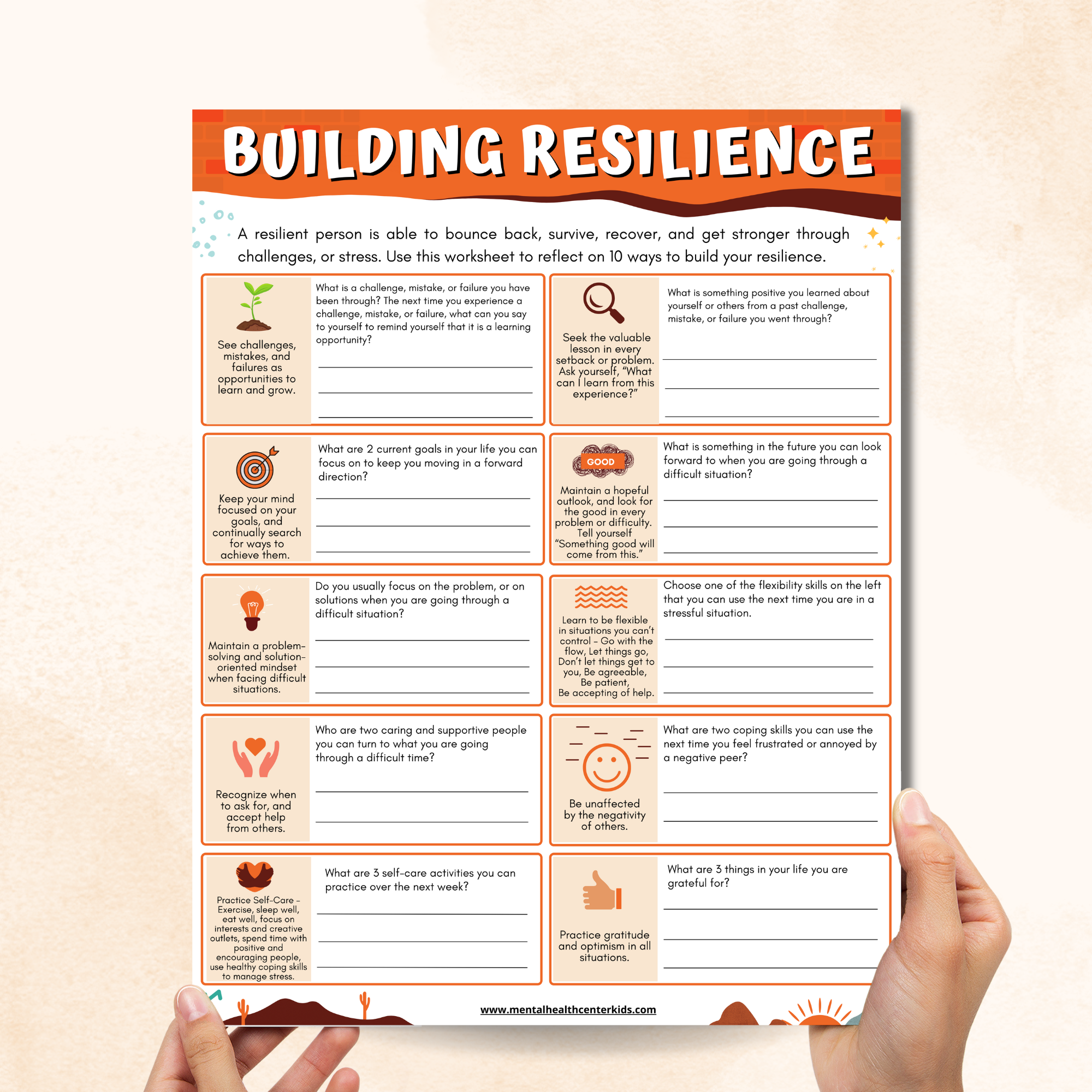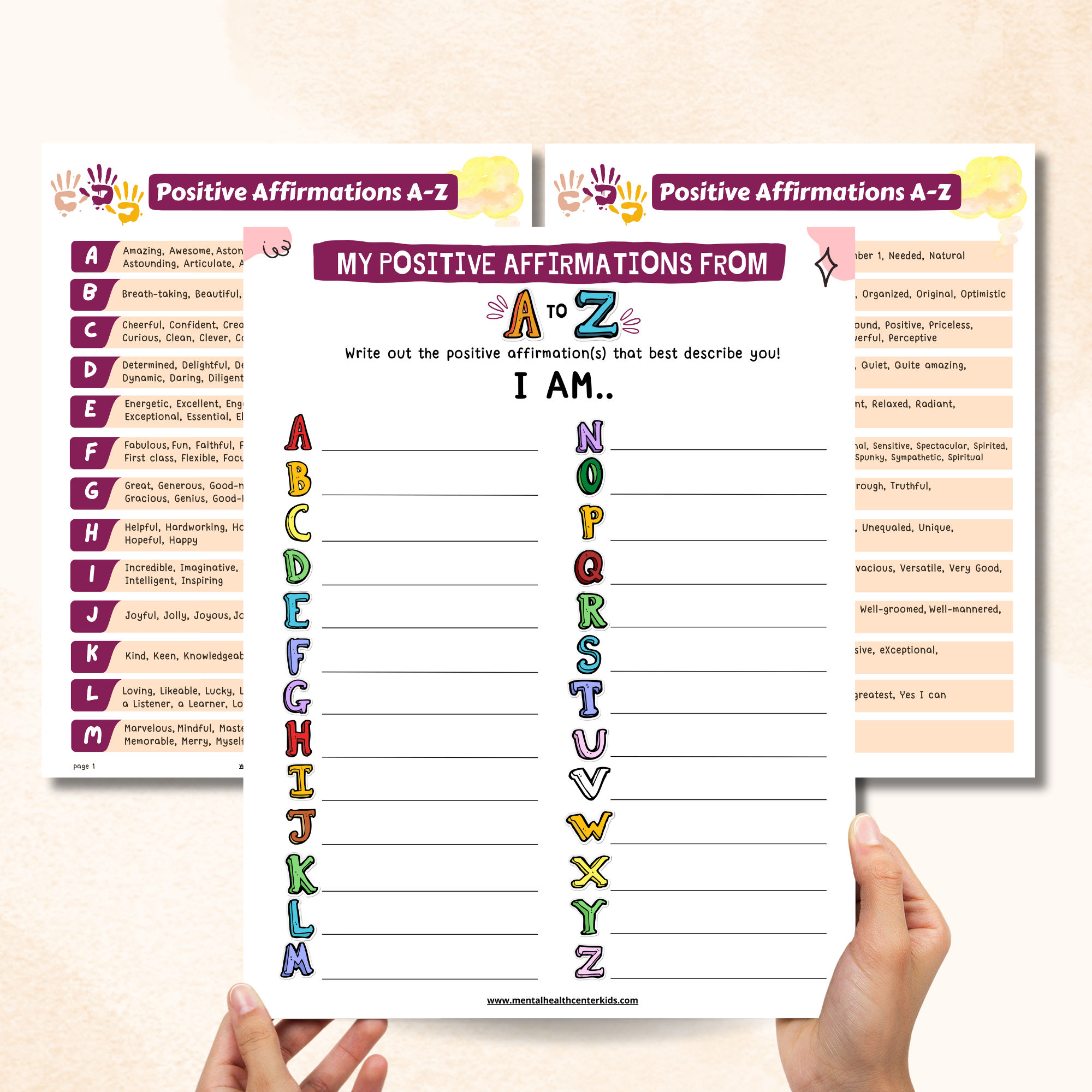|
Key Takeaways:
- A growth mindset teaches children that abilities can improve with effort and practice, unlike a fixed mindset that sees skills as unchangeable.
- Worksheets provide hands-on tools for reflection, goal-setting, managing difficulties, and tackling challenges.
- Regular use of these worksheets helps children develop resilience, perseverance, curiosity, and self-compassion.
|
As a parent, you want your child to feel confident, competent, and resilient, but sometimes it’s hard to know how to help them develop these skills. One of the most powerful gifts you can give your child is a growth mindset, or the belief that effort, practice, and learning from mistakes can help them improve and succeed.
The growth mindset worksheets below help children reflect, solve problems, and tackle challenges that stretch their abilities, so they can endure difficult times, persevere, and develop a love for learning.
What is a Growth Mindset?
A child’s mindset shapes how they see themselves and their abilities. A growth mindset helps children understand that skills and intelligence can improve through effort and persistence.
Research shows that beliefs about whether abilities can grow influence how we set goals, take actions to reach those goals, and stay motivated. A meta-analysis found that people with a growth mindset are more likely to focus on learning, persist through challenges, and manage their emotions and expectations while working toward goals [*].
The difference between a growth mindset and a fixed mindset is significant. With a fixed mindset, children think they're either "good at something" or they're not, and there's not much they can do about it.
Kids who believe their abilities are fixed may feel discouraged or anxious when challenges arise. Research shows that fixed-mindset beliefs are linked to higher levels of mental health problems in youth [*].
But with a growth mindset, they learn to add one powerful word to their vocabulary: "yet." So instead of saying "I can't do this," they say "I can't do this yet." That small shift makes a huge difference in how they approach everything from homework to friendships to trying new activities.
When kids believe they can get better at something with practice, they approach challenges with curiosity instead of fear. They learn to see mistakes as part of learning, not as failures. This belief can make a big difference in how children handle frustration, build confidence, and stay motivated.
10 Printable Growth Mindset Worksheets for Kids
Building a growth mindset takes practice. It's not something that just clicks overnight. That's where worksheets come in handy. They give kids concrete, hands-on ways to work through these bigger concepts.
Here are ten worksheets that are recommended for parents, educators, and mental health workers. They help children build the characteristics that form a growth mindset.
1. Comfort Zone Worksheet

The Comfort Zone Worksheet helps children visually understand the difference between what feels safe and what helps them grow. It features two circles, one for the child to list activities that feel comfortable and another for those that challenge them or make them a little nervous.
This worksheet normalizes that everyone has a comfort zone. Moreover, it also encourages kids to choose specific actions from their outer circle to try. This simple yet powerful exercise helps children see that growth happens when they take small, brave steps beyond what’s familiar.
Download the worksheet here.
2. Courage Ladder Worksheet

The Courage Ladder worksheet is set up exactly like it sounds, as a ladder with seven rungs. Kids start by identifying something they're afraid of or find really difficult, and then they break that big, scary goal down into seven progressively challenging steps. The bottom rung is the easiest, least scary step they can think of, and each rung going up gets a little bit harder until they reach the top, or the ultimate goal they're working toward.
This worksheet helps build a growth mindset because it tackles one of the biggest obstacles kids face, which is that overwhelming feeling when something seems too big or too scary even to try. It makes intimidating goals feel doable, teaches that courage is built, and emphasizes progress over perfection.
Download the worksheet here.
3. DBT Building Mastery Worksheet

The first page of this worksheet works like a weekly planner where kids commit to one activity each day, track their progress, and build consistency. The second page helps them step outside their comfort zone, plan for setbacks, and celebrate small wins.
This worksheet teaches kids one of the most important growth mindset lessons: you get good at things by doing them consistently, not by being naturally talented. It also normalizes that building mastery is a process with ups and downs.
Download the worksheet here.
4. Anxious Thoughts Breakdown Worksheet

The Anxious Thoughts Breakdown Worksheet helps kids write down their anxious thoughts and replace them with more realistic, balanced ones. It also guides them to recognize automatic negative thoughts and develop calming, rational responses to better manage anxiety.
This worksheet may seem focused on managing anxiety, but it’s also a powerful tool for developing a growth mindset. Anxiety often fuels fixed thinking by telling kids that challenges are permanent or unchangeable. By helping them identify and replace those thoughts with more balanced, realistic ones, the worksheet guides kids toward a mindset of growth and possibility.
Download the worksheet here.
5. Circle of Control Worksheet

The Circle of Control Worksheet helps children distinguish between what they can influence and what lies outside their control. This worksheet supports a growth mindset because it teaches children to focus energy where it matters. They learn that while they can’t always change external events, they can control how they react, how persistent they are, and how much effort they put in.
That shift in perspective is empowering because, rather than feeling overwhelmed by factors beyond them, children learn to channel their efforts into what they can do.
Download the worksheet here.
6. Resilience Worksheet

Kids can build resilience by starting with examining their own capacity to bounce back from difficulties. This worksheet guides children (or teens) to reflect on challenges or failures they’ve experienced and to identify the coping skills, lessons, and strengths that helped (or could help) them bounce back.
Resilience is a growth mindset in action. The Resilience Worksheet creates space for kids to think about past challenges they've faced and prepare for difficult times in the future.
Download the worksheet here.
7. Curiosity Worksheets

This 2-page worksheet allows children to reflect on their natural drive to ask, explore, and learn. It includes different writing prompts to spark curiosity.
With a growth mindset, learning is an ongoing journey. Instead of viewing not knowing as a failure, kids see questions and exploration as signs of growth. This worksheet encourages children to stay open to new ideas, stretch their thinking, and be comfortable saying “I don’t know, but I’ll look it up.”
Download the worksheet here.
8. Perseverance Worksheets

This bundle includes 3 worksheets: My Perseverance Ladder, My Perseverance Journey, and My Perseverance Commitment. In these pages, children can set a goal, break it down into step-by-step actions, and make a personal vow to stick with the process even when it gets hard.
It's easy to believe effort matters when things are going well, but perseverance is about maintaining that belief when things are hard, progress is slow, and you really want to quit. These worksheets give kids practical tools to keep going during those difficult moments. They also emphasize that perseverance "grows with practice" and is "a skill."
Download the worksheet here.
9. Open-Minded Worksheets

Kids often aren’t aware when they’re thinking in a close-minded way. By having them identify open versus closed mindset statements, these worksheets build awareness. They start recognizing their own rigid thinking patterns, which is the first step toward changing them.
These worksheets are a strong growth mindset tool because they help children become aware of how their internal dialogue influences how they interpret challenges and new ideas. It encourages them to shift from rigid thinking toward more flexible, curious thinking.
Download the worksheets here.
10. Positive Affirmations Worksheet

The Positive Affirmations Worksheet invites children to write down kind, encouraging statements they can say to themselves, especially when they’re feeling doubtful or frustrated.
This is an excellent growth mindset tool because it helps reshape a child’s inner voice. Instead of being stuck in self-criticism (“I’m not good enough,” “I’ll never get this”), this worksheet encourages them to practice positive, proactive statements that reinforce effort, resilience, and self-compassion.
Download the worksheet here.
The Bottom Line
Developing a growth mindset is one of the most valuable gifts we can give children. By regularly working through these worksheets, children learn to embrace challenges, persist through difficulties, and view their abilities as qualities they can develop rather than traits they're born with.
The journey to building a growth mindset doesn't end with worksheets, though. For additional inspiration, explore these growth mindset quotes that reinforce positive thinking, growth mindset activities that make learning interactive and fun, or growth mindset books that bring these concepts to life through stories.
References:
- Burnette JL, O'Boyle EH, VanEpps EM, Pollack JM, Finkel EJ. Mind-sets matter: a meta-analytic review of implicit theories and self-regulation. Psychol Bull. 2013 May;139(3):655-701. doi: 10.1037/a0029531. Epub 2012 Aug 6. PMID: 22866678.
- Schleider JL, Abel MR, Weisz JR. Implicit theories and youth mental health problems: a random-effects meta-analysis. Clin Psychol Rev. 2015 Feb;35:1-9. doi: 10.1016/j.cpr.2014.11.001. Epub 2014 Nov 7. PMID: 25462109.































































